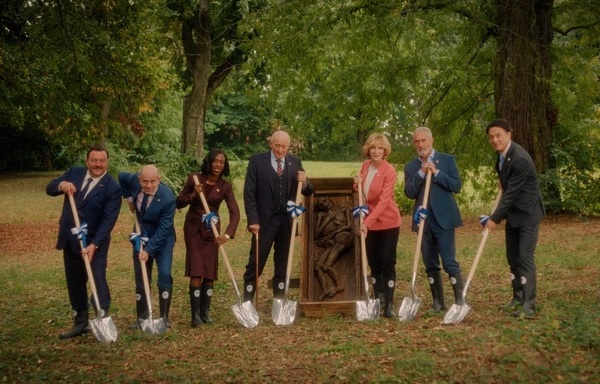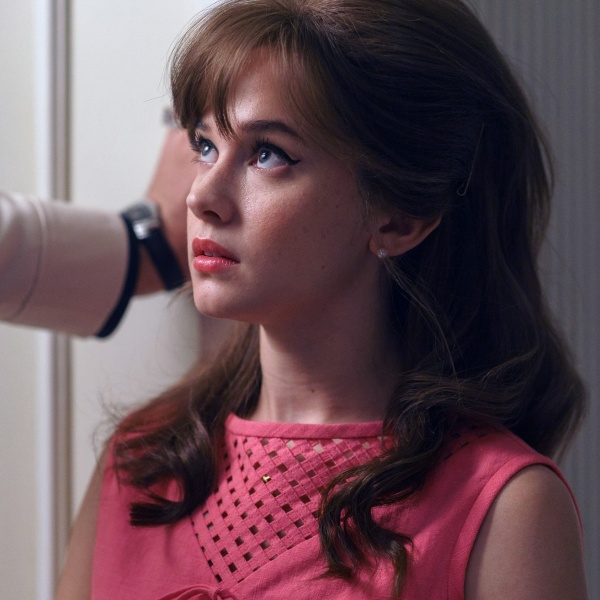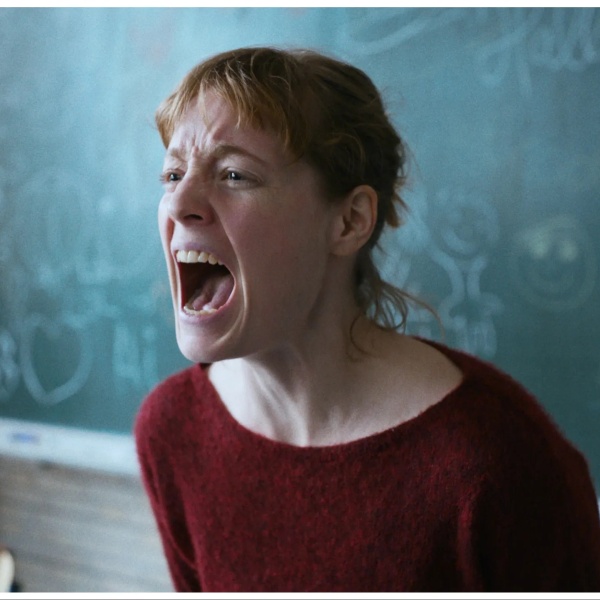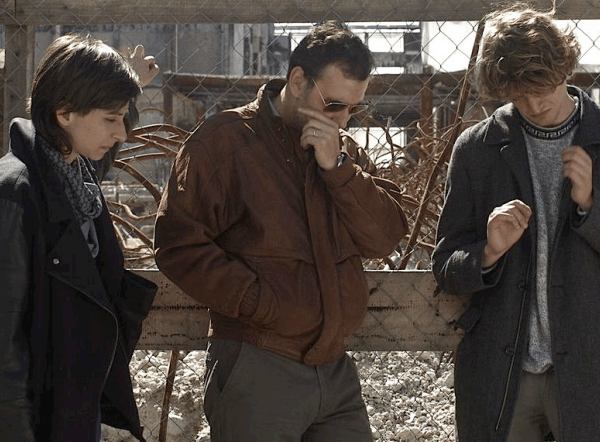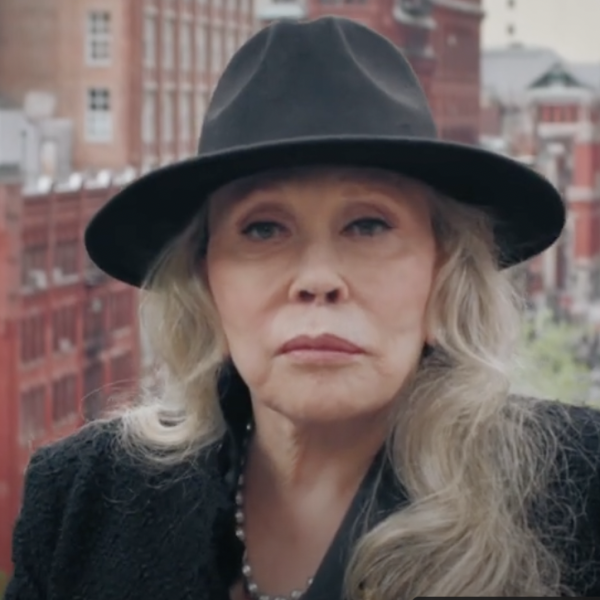It all started with an otherworldly encounter. One night, after his second feature “O-Town” had not been the hit he had hoped for, Nigerian director C.J. “Fiery” Obasi found himself on a beach, pondering the future of his career.
“I felt like I was cursed with the sophomore jinx that filmmakers suffer from sometimes,” he told IndieWire during a recent interview. “I didn’t want to start doing things just because I think that’s what people want to see. I was trying to find my place in the world.”
In that existentialist state, Obasi had a vivid black-and-white vision of the mermaid-like deity known across West Africa as Mami Wata. “She was standing in the ocean with locks of hair dripping all the way down to her knees covering her entire body,” he recalled. “Her eyes were pure red. It’s probably because of the red eyes that I know that everything else was a black and white.”
Behind him, a young woman started walking towards Mami Wata. She walked right across the filmmaker. It was in that moment he decided to make a movie about the goddess, but not precisely focused on her. “Instinctively, I knew the person I had to follow wasn’t Mami Wata, but the young woman,” he said. “I knew she would still lead me back to Mami Wata.”
The resulting project, simply titled “Mami Wata,” premiered at this year’s Sundance Film Festival. The movie is Nigeria’s current Oscar submission for Best International Feature Film and is also the first Nigerian production ever nominated for an Independent Spirit Award in the International Film category.
“Mami Wata” observes the clash between ancient beliefs and the aggressive march of what the West would describe as “modernity” through the perspective of people living in Iyi, a seaside town devoted to the titular holy entity. The leader, Mama Efe (Rita Edochie), acts as the connection between the earthly and the divine. But when she can’t deliver on her promises of healing and prosperity, residents begin to lose their faith. Efe’s daughter and adopted mentee, Zinwe (Uzoamaka Aniunoh) and Prisca (Evelyne Ily Juhen), become entangled in the violence of escalating unrest.
Prior to “Mami Wata,” Obasi wrote the screenplay for the drama “Lionheart,” which was set to become Nigeria’s first-ever Oscar entry in 2019. The Academy ultimately disqualified that film by director Genevieve Nnaji given that most of its dialogue is in English and only a faction in the local Igbo language, raising questions about how the rule on language presents a disadvantage for countries with a British colonial past.
“The idea of language is a very political thing, and it affects a country like Nigeria is a very specific way,” said Obasi. “You have a country that speaks over 500 ethnic languages and dialects. So where do you even begin when you want to make a film?”

For “Mami Wata,” the director stuck with the most authentic tongue for the story, even if it could impact the movie’s economic viability or its chances at international recognition. “The film exists in a fictional West African village that is frozen in time. What particular language has the texture and DNA of West African culture, tradition and spirituality? It’s Pidgin,” he said. “It’s spoken across the region, irrespective of tribe and ethnicity.”
Early on in the development process Obasi faced strong opposition to the story he wanted to tell. Nigeria, he explained, is a rather religious country where Christianity and Islam dominate most aspects of life. Therefore, traditional practices and beliefs, such as Mami Wata, are perceived negatively. Making a film about such subject matter, effectively bringing it to the foreground instead of demonizing it, made him a target for scorn.
“We had crazy, almost violent responses from people when we mentioned that we were making a film about Mami Wata,” he said. “A lot of people tried to blacklist us.”
It wasn’t until Obasi attended the 2018 Ouaga Film Lab in Burkina Faso that he gained confidence in his core idea. The positive feedback for the screenplay at the the lab’s workshops helped him transcend the tropes of genre and get to the heart of the feeling he sought to capture, the feeling he felt from the vision that started it all.

Obasi had experimented with horror in his debut feature, 2014’s “Ojuju,” a zombie flick set in the city of Lagos, and later with a gangster movie in 2015’s “O-Town.” But while those two efforts put a Nigerian lens on familiar concepts, he wished to challenge himself on “Mami Wata.”
Obasi scrapped his tenth draft of the screenplay and started from scratch. “That allowed me to have more layers and more texture to the story, rather than just a purely traditional genre film, which it would’ve been otherwise,” he explained.
More than 70 percent of the film’s financing came from private Nigerian investors who believed in the project, and the rest came from other investors in the U.K. and in France. Principal photography took place not in Nigeria, but in Benin, a neighboring country known as the birthplace of the Voodoo religion. The director needed an oceanside town that didn’t look too developed, but it couldn’t seem poverty-stricken, as he aimed to avoid perpetuating the images of Africa prominent in films from a Western vantage point.
Unable to find such a place in his native Nigeria, Obasi thought of Benin, not only as a logistically ideal option, but one that felt spiritually in synch with Mami Wata. To remain truthful to his revelation on the beach, Obasi envisioned “Mami Wata” in highly saturated black or white, where the blacks are intensely black, the whites are just as rich, and there are no grays. This meant that every element on screen —production design, costumes, and even the actors’ makeup — had to work in function of that aesthetic decision.
“We couldn’t work with greens or with yellows, because if you convert those to black and white, they turn out to be more or less gray or ashy, which we weren’t going for,” he said. “We used more purples and navy blues. We were intentional about every choice of color.”
These efforts to craft striking imagery paid off, as director of photography Lílis Soares received a Special Jury Award for Cinematography at Sundance.

That “Mami Wata” debuted at one of the world’s most relevant festivals enabled it to break in back in Nigeria. Without that visibility, Obasi doesn’t believe his latest work would have been released domestically. According to him, the established local film industry doesn’t welcome creators whose productions don’t fit within its rigid notion of economic viability.
In both form and theme, “Mami Wata” doesn’t resemble the broader options Nigerian audiences are often offered. “We struggled with the power structures, people who feel threatened by the idea of the status quo changing, people who profit off of the narrative that Nigerians only like certain films or that only certain films can be made,” he said.
Obasi believes that striving to make intellectually resonant narratives with high production values, which can aspire to having an international presence, is his way of advocating for “the soul of Nigerian cinema.”
“My thing is to fight for the ability of other kinds of cinema to thrive in Nigeria outside of what is considered to be commercial there,“ he explained. “Once that happens, it will open up the flood gates for other young people who want to find their own cinematic voice.”

